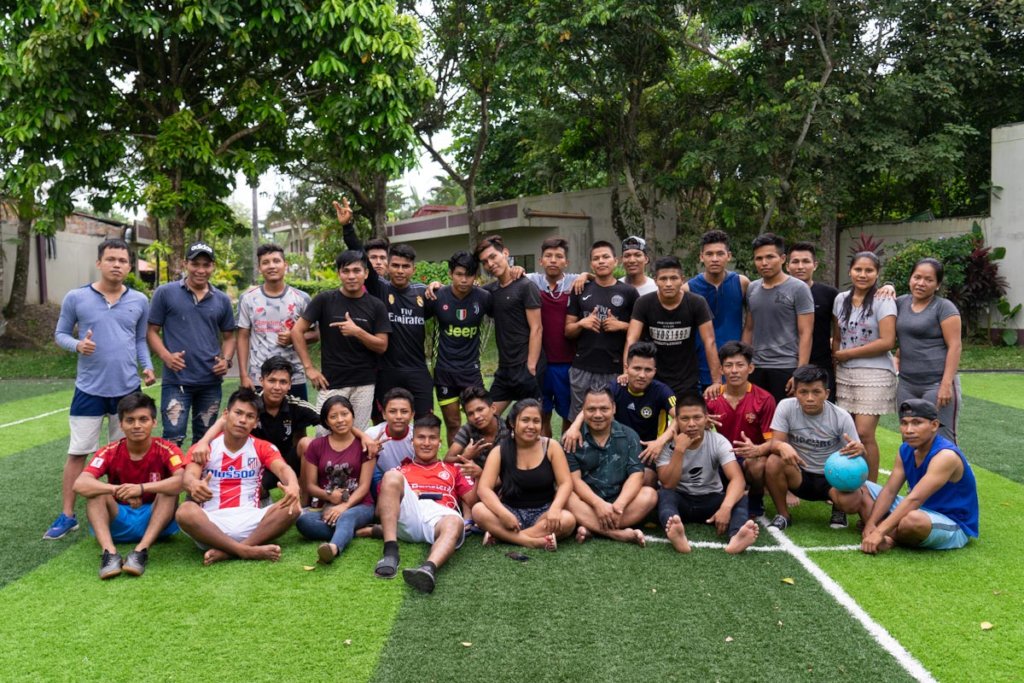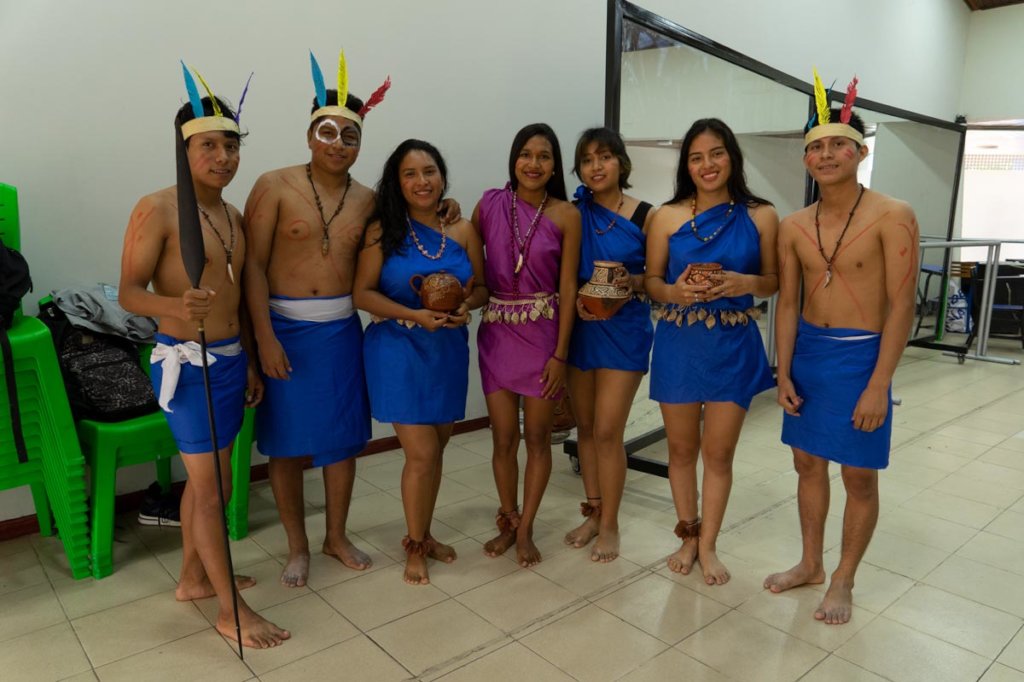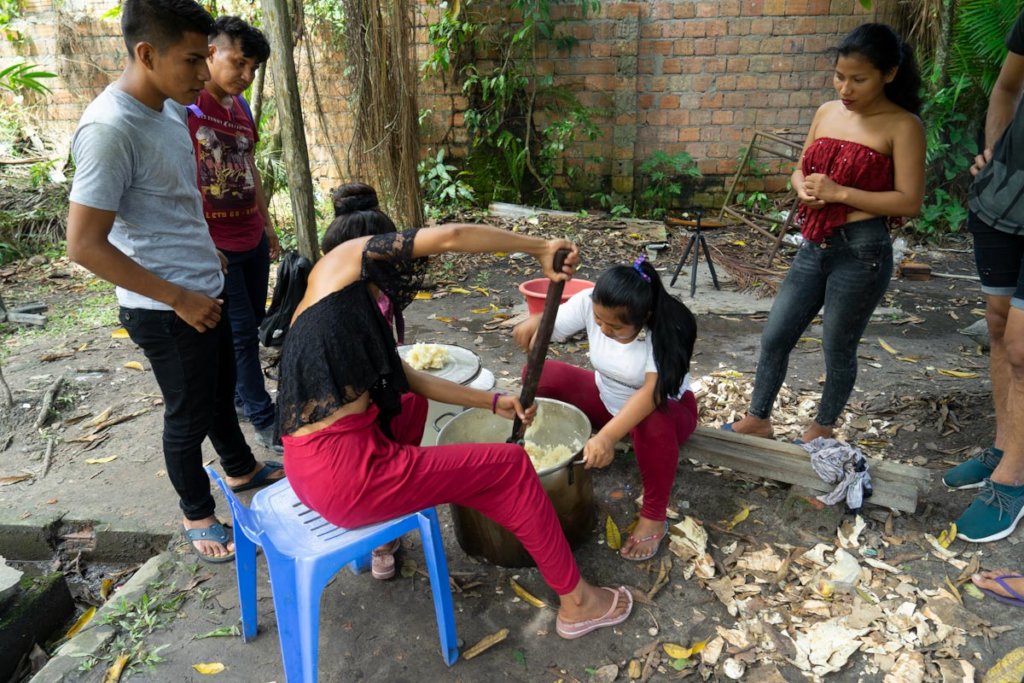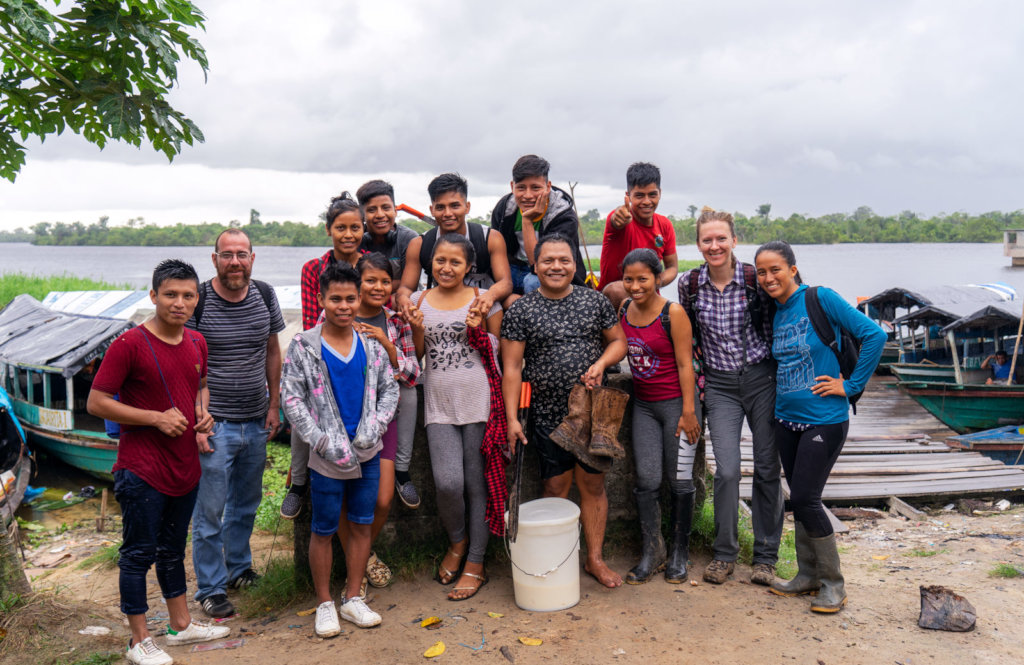By Stefan Kistler | Director of the Chaikuni Institute
Dear Friends and Supporters,
Today, we thought we´d seize the opportunity to briefly tell you a bit about the difficult political context we are working in and the challenges the students and our Institute face trying to build a permanent student center for the indigenous students here in Iquitos.
A short re-cap: In late 2017, the students achieved a (seemingly) historic victory as the Regional Government signed an agreement to lease a piece of land to them for 10 years (renewable) where the future student residence shall be built. In 2018, the government approved a project to build temporary housing on the land, announcing the start of the construction several times throughout the year. Yet, when the 4-year term of the government came to a close in the end of 2018, not one single brick had been laid out. The exception: In mid-2018, with your help, we at the Chaikuni Institute went ahead and built a computer room and office space for the students.
A few months after the new government had taken over office, and the students re-opened negotiations for the building of the student housing, the government announced that they would nullify their agreement over the lease of the land. They proclaimed that the agreement had legal procedural errors, and that the land was zoned for other purposes. In short, the future residency cannot be built on the piece of land granted to them in 2017.
Once this shock was somehow digested, instead of giving up, the students and Chaikuni armed a new advocacy campaign towards the regional government, teaming up with more allies such as the local arm of the Ministry of Culture. The attitude of the Regional Government so far has been collaborative; a series of meetings to identify a new alternative piece of land for the students has given some preliminary results. At the same time, a committee is being established that will together draw up a public project and plans for the student residency. In the meantime, the students have once again been moved to another temporary hostel; but this time to a residency with much improved living conditions.
Of course, our Intercultural Education program has also been doing many other activities. We continued our workshops on bee-keeping with stingless bees, organizing two visits to our permaculture center. For the upcoming documentary, we accompanied some students in their lectures at the University and visited Leonarda, a young and energetic Tikuna woman studying in Iquitos, in her native community Cuchillococha, situated further down on the Amazon river, close to the boarder with Brazil and Columbia.
In early May, we had the pleasure to receive Viktorija, field traveler for South America from GlobalGiving, here in Iquitos. We organized a full day visit to our permaculture center, where the indigenous students and our staff organized a so called minga (=communal work). It is very common in the Loreto region that village members gather regularly to do communal work; building a school, clearing a communal field, improving a road or a path, etc. The female students had prepared masato for the event; a traditional drink made out of (usually fermented) cassava, widely used among indigenous peoples in the Peruvian Amazon. The day was shared between setting up ecological gardens, drinking masato and sharing experiences.
We'll keep you updated with the latest news as we continue to run our campaign for the full funding goal, and for the student residency to become a reality. Any donation will help to keep us going.
We thank you for everything you continue to do to support indigenous youth in the Peruvian Amazon.
With profound gratitude,
The Indigenous Students of OEPIAP and The Chaikuni Institute Team
Project reports on GlobalGiving are posted directly to globalgiving.org by Project Leaders as they are completed, generally every 3-4 months. To protect the integrity of these documents, GlobalGiving does not alter them; therefore you may find some language or formatting issues.
If you donate to this project or have donated to this project, you can receive an email when this project posts a report. You can also subscribe for reports without donating.
Support this important cause by creating a personalized fundraising page.
Start a Fundraiser



